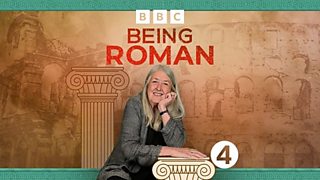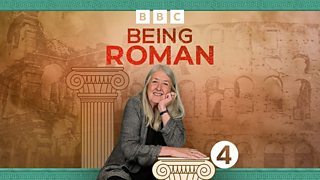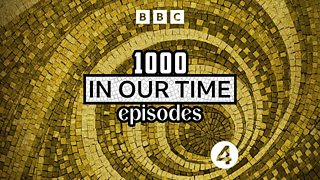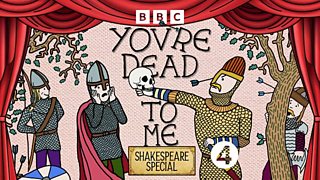Six surprising things that Mary Beard reveals about Roman emperor Marcus Aurelius
Beneath the starched togas and the pungent fug of gladiator sweat there are real Romans waiting to be discovered. In new �������� Radio 4 series Being Roman, best-selling historian of the ancient world, Mary Beard, uncovers the stories of six fascinating people who lived at the height of Rome’s power – exploring the thoughts and feelings of real Roman citizens, from slaves to emperors.
In the first episode she looks behind the steely façade of famously philosophical, strong and masculine emperor Marcus Aurelius to discover a much more complicated, naïve, flirtatious and curiously anxious young man.
Here are six surprising things we learned about the legendary leader.
1. He’s still a 21st century bestseller
As well as a military man, comfortable with brutal violence and relentless warfare, Marcus Aurelius was a writer and deep thinker. His Stoic philosophical jottings on life and death are now published under the title ‘Meditations’, in which we learn his thoughts on leadership, death, morality and what it should mean to be Roman. “We don’t have quite that kind of reflection from any other Roman emperor,” states Mary. An inspiration to many, his book of motivational musings is said to have graced the bedside tables of President Bill Clinton and golfer Rory McIlroy – and remains a bestseller to this day.
2. He holidayed in a villa outside Rome
Before he was a war leader or a philosopher, the young Marcus Aurelius took lessons on how to be an emperor from his tutor Marcus Cornelius Fronto and from his adoptive father, the emperor Antoninus Pius.
Just an hour away from central Rome, in the foothills, was a villa where he used to spend his holidays. And it’s from letters sent to his tutor, from this rural sanctuary, that we get a sense of the details of his day-to-day life. The activities he relates include hunting, a lie-in (because he had a “touch of a cold”), reading, writing, studying and gathering grapes. He even talks about standing next to his father as “he offered a sacrifice”.
3. He trained to be a good farmer as well as a fighter
We know from his letters that Marcus Aurelius read Cato’s treatise on agriculture. And while in the holiday villa outside Rome, he “dined in the grape-pressing room and had fun listening to the yokels bantering with each other as they worked.” He also helped to pick the grapes that were being trodden. He was learning how to be part of the agricultural community and processes.
This is “turning the image of the emperor upside down for us,” says Mary. It shows how the role is not just needing to know about military tactics or the urban ceremonial or good building – “actually you also need to learn about how to be a good farmer” for the sake of your rural subjects.
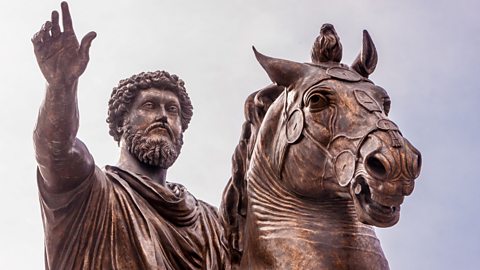
“I think it got as far as kissing”
Amy Richlin talks to Mary Beard.
4. He was boyish and immature
Mary describes the young emperor in waiting as ‘over-juvenile’: “He talks about sitting down and having a nice cuddle up on the couch with his mummy,” relays the historian.

Amy Richlin from UCLA is writing a book on these early letters from the emperor. She agrees he was “certainly immature” but believes this is all about the context of how he was brought up. His mother was really his only surviving relative and the two of them were “bundled off” to live with Antoninus Pius, who he refers to as his father but who also had another wife. “So Marcus Aurelius and his mother were like castaways almost, within the royal house.”
5. He was infatuated with – and flirted outrageously – with his tutor
Fronto was the preeminent orator of his day and was in his early 40s when he was chosen by the royal family to be Marcus Aurelius’ tutor, when Marcus was just 18.
The tutor was a “very charismatic, very attractive man,” says Amy, and it’s clear from their written exchanges that Marcus had a huge crush on him: “I render up an accounting of my day to my sweetest teacher,” writes Marcus. “If I could long for him more, I’d gladly waste away a tiny bit more. Will you keep well for me Fronto, wherever you are? My honeyest honey, my love, my pleasure. What is it with me and you? I love someone and he’s not here.”
It’s unclear whether they were in an active relationship, or merely flirting on the page. But their affectionate sign-offs are certainly more passionate than in other examples of correspondence we have from the time. “I think it probably got as far as kissing but no further,” suggests Amy. “It seems to have been heavily emotionally charged between the two of them.”
Later down the line, it appears Marcus dumped his tutor, who writes a couple of long and very sad letters. Fronto asks: “What is sweeter to me than your kiss? All my pleasure, all my delight is in the scent of your kiss.”
6. Like most teenagers, he found it hard to focus
Despite – or perhaps due to – Marcus’s infatuation with his tutor, he often found it hard to concentrate on his schoolwork. We know this because homework is also a common theme of the letters exchanged between the soon-to-be emperor and Fronto.
“But like most teenagers, he finds it hard to focus,” says Mary, so they soon drift into vivid discussions about family life. Marcus recounts his sister’s “pain in her private parts”, his mother banging her side against a wall in panic and narrowly avoiding getting into bed with a scorpion.
To hear the stories of more fascinating people from the Roman Empire, listen to the full series of Being Roman with Mary Beard on �������� Sounds now.
-
![]()
Being Roman with Mary Beard
Beneath the starched togas and the pungent fug of gladiator sweat there are real Romans waiting to be discovered. Mary Beard uncovers six fascinating stories from the Empire.
-
![]()
In Our Time
Melvyn Bragg and guests discuss the ideas, people and events that have shaped our world.
-
![]()
You're Dead To Me
Marking the 400th anniversary of the First Folio, Greg and his guests present a special edition on the life and legacy of Shakespeare. Recorded at the Shakespeare North Playhouse.
-
![]()
Just One Thing
Michael Mosley reveals surprisingly simple tips to improve your health and wellbeing.
